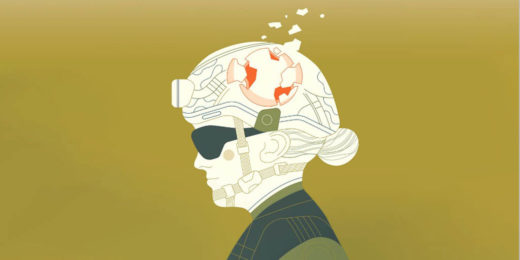Many (many) years ago, as a budding cancer biology graduate student, I and my fellow first years attended a weeklong training program in Colorado to learn what cancer looks like inside the body.
We examined tissue samples from lung cancer patients, poured over microscope slides of healthy and cancerous cervical cells, and memorized (so) many disease states. It was an intense rite of passage -- broken up by breathless sightseeing hikes at 11,000 feet -- that we collectively called Cancer Camp.
Despite our up-close and personal introduction to myriad cancer types during that week, I've always felt that brain cancer was one of the most scary -- not just because it can be difficult to treat but also because it strikes at the very heart of what makes a person who they are.
That's why I was particularly excited to talk with neurosurgery chair Michael Lim, MD, for my latest article for Stanford Medicine magazine. We discussed recent advances in immunotherapy for brain tumors called glioblastomas. I learned that although immunotherapy has proven very effective for many cancer types, brain cancers are particularly challenging.
Bodywide immune suppression
"It's clear that brain cancers are different from other types of cancers," Lim said. "For example, we've found that, although all tumors suppress the immune response in the microenvironment, tumors that originate in the brain cause a global immune suppression that affects the whole body. This makes it very hard to induce an immune response to the tumor."
Lim and his colleagues are trying to understand this immune suppression, and to come up with ways to combat it. Personalized, combination treatments that unleash the immune system to attack the cancer offer new hope for these patients and their families, he believes.
A reason for hope
"Right now, we are understanding cancer at a level we've never achieved before," Lim said. "As we learn how to assess a patient's tumor, we can become more and more precise with the therapies we can offer. We're not just wielding blunt tools anymore. I'm optimistic and excited about the future for these patients."
Illustration by Sciepro






